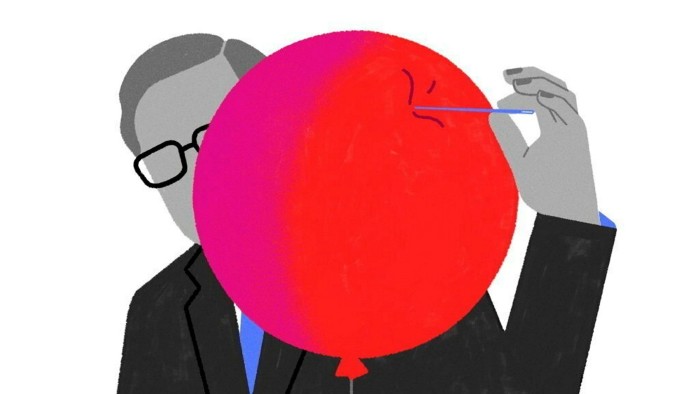Can Japan ever pass the ‘Buffett horizon’?


Simply sign up to the Japanese business & finance myFT Digest -- delivered directly to your inbox.
Warren Buffett’s Berkshire Hathaway, its bankers confirmed on Wednesday, is planning to issue yen-denominated corporate bonds for what will be the second time this year, and the seventh since 2019.
The two popping sounds you might be hearing are, one, the celebratory corks of “Japan is back” brokers and fund managers relieved that the world’s most famous investor seems content to remain at this historically frustrating table for at least another hand and, two, the starting gun on weeks of speculation over what Buffett might buy next with his cheaply raised stack of local currency.
A far more valuable debate for Japan, though, is what might happen to the market if Buffett stops and walks away. The question, then, is whether Japan’s equity market has yet moved beyond its “Buffett horizon” — the notional point beyond which it has sufficient momentum to continue enticing new investors even if the most talismanic one loses interest.
For now, given yesterday’s news on the bond raising, there seems little chance of the Buffexit hypothesis being practically tested any time soon. Berkshire Hathaway’s issuance of $4bn of bonds back in September 2019 began a process through which it built stakes of just over 5 per cent in each of Japan’s five largest trading houses by the following August.
Whenever it has issued new yen bonds since then (the latest was a $1.1bn raising in April), it has used the proceeds to expand its holdings in just those same five companies beyond 8 per cent. The chances of it doing the same again — and of ignoring the other 3,500-odd stocks in Japan — seem high.
As a statement of confidence and ambition, Berkshire’s even-handed investment in Mitsubishi, Mitsui, Marubeni, Sumitomo and Itochu was remarkable for many reasons, not least because it was Buffett’s first serious foray into Japan and because, at the time, it was a stunningly contrarian call.
At the point where Berkshire began building the trading house stakes, global investors were nearing the end of a 32-month phase in which they had offloaded an unprecedented $132bn of Japanese stocks and apparently felt zero fear of missing out in doing so. The once market-boosting “Abenomics” story, in which investors bet on both the Bank of Japan’s policy support and the late prime minister Shinzo Abe’s reforms, had ended and there was no obvious new bestseller to take its place.
The mid-2020, mid-pandemic disclosure of Buffett’s bet proved extremely powerful. Japan’s five biggest trading houses are arguably the best equity proxies for the strength of corporate Japan as a whole, its dealmaking appetite and its willingness to expand globally. And here was Buffett betting large on them as both a collective engine of profit and, by implication given his historic focus as an investor, on their skills as managers.
Votes of confidence, however small a portion of Berkshire’s overall portfolio Japan represents, do not come more comprehensive. The five stocks soared on the disclosure of the identity of their new largest shareholder, and since August 2020 have all risen between 100 per cent (Itochu) and 250 per cent (Marubeni).
But the secondary effect of Buffett’s bet has been to anchor the still functioning “buy Japan” narrative that has pushed the Topix index roughly 43 per cent higher over the three years since he declared his investment.
Japanese equities have delivered 30 years of false dawns, but there is now a genuine hunger among global investors for evidence that this time is different and that Japan is investable as a long-term alternative to China. Berkshire has, to a significant extent, satisfied some of that hunger. Buffett’s stockpicking may be highly selective and perhaps inimitable, but it proves that you can come to Japan and win.
What are the chances that Buffett could sharply reduce his stakes in the trading houses, take the sizeable profit he has made (even with the currency hit) and say farewell to Japan? He was a contrarian on the way in, so, given that the Tokyo market is one of the world’s best performers this year, why not on the way out?
The answer, probably, is that he will stay. But the Buffett horizon question remains exactly the one investors still prevaricating on Japan should be asking. If they believe that word of Buffett’s retreat would cause a week of serious turmoil across the market, followed by a shrug and a fairly robust return to trend shortly afterwards, then they should buy Japan. If they judge, despite fundamentals, that the whole solidity of the market depends on the continued presence of a 93-year-old man’s investment company, they should not.
Comments